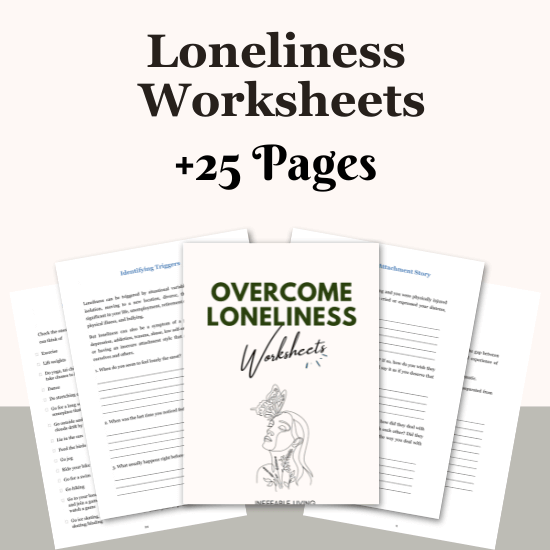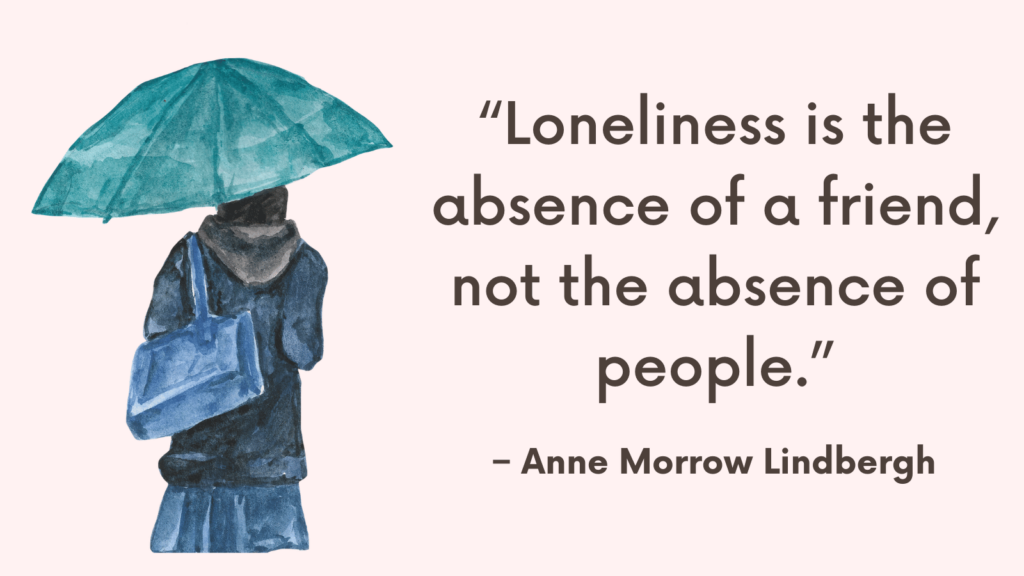In this post, you’re going to learn how to stop feeling like a burden.
Why Do I Feel Like a Burden?
Feeling like a burden can be a distressing and impactful emotion that may stem from various underlying factors.
1. Self-Criticism and Low Self-Worth
It’s common for individuals to internalize self-critical beliefs and perceive themselves as burdensome due to low self-worth.
Addressing these beliefs through self-compassion exercises and cognitive restructuring can help shift the perception of oneself.
2. Mental Health Challenges
Conditions such as depression, anxiety, or trauma can influence one’s perception of themselves, leading to feelings of being a burden.
Seeking professional support and treatment for mental health concerns is crucial in addressing these underlying issues.
Related: How To Stop Self-Critical Thoughts Using These Top 10 Techniques
3. Past Experiences
Previous experiences of rejection, invalidation, or neglect can contribute to feeling burdensome in relationships.
Exploring and processing past experiences in therapy can help alleviate the impact of these experiences on current emotions.
4. Role Expectations
Feeling overwhelmed by perceived expectations of specific roles, such as being a parent, caregiver, or provider, can lead to a sense of burden.
Challenging unrealistic role expectations and establishing boundaries can help manage these feelings.
5. Communication Patterns
Patterns of communication within relationships can influence how one perceives their impact on others.
Developing assertive communication skills and seeking feedback from supportive individuals can offer a more balanced perspective.
Related: Impulsive vs Intrusive Thoughts (& How to Manage Them)
6. Social Support Deficits
Limited social support and feelings of isolation can intensify the belief of being a burden.
Cultivating supportive relationships and seeking out community or therapy groups can help create a network of understanding and empathy.
7. Cultural or Family Dynamics
Cultural or familial messages about worth, dependency, or independence can shape one’s self-perception.
Reflecting on and challenging these messages can pave the way for a healthier self-view.
8. Physical Health Challenges
Chronic illness, disability, or physical limitations can contribute to feelings of being a burden due to increased reliance on others.
Seeking adaptive strategies, support groups, and professional guidance can aid in managing these emotions.
Related: 30 Day Social Anxiety Challenge That Will Help You Feel More Confident
How to Stop Feeling Like A Burden?
Feeling like a burden can significantly impact one’s emotional well-being and relationships. It’s essential to address these feelings with compassion and evidence-based strategies. Here are some scientifically supported approaches to help stop feeling like a burden:
1. Self-Compassion
Cultivate self-compassion by treating yourself with the same kindness and understanding that you would offer to a friend.
Practice self-soothing techniques, such as positive self-talk and reassuring gestures, to counteract self-criticism and build a more nurturing inner dialogue.
2. Identify and Challenge Negative Beliefs
Recognize and challenge negative beliefs about being a burden.
Engage in cognitive restructuring by replacing self-defeating thoughts with more realistic and balanced perspectives.
Consider the evidence for and against these beliefs and develop alternative, compassionate self-narratives.
Related: Negative Core Beliefs List (& 8 Tips On How To Challenge Them)
3. Communicate Openly
Engage in open and honest communication with trusted individuals about your feelings.
Expressing vulnerability and seeking feedback can foster understanding and empathy within your relationships.
Clear and respectful communication can help dispel misunderstandings and misconceptions.
4. Practice Assertive Communication
Develop assertive communication skills to express your needs, boundaries, and emotions effectively.
Assertiveness involves advocating for yourself while respecting the rights and perspectives of others.
Learning and practicing assertive communication can bolster self-esteem and reduce feelings of helplessness.
Related: Top 5 Tips On How To Be Assertive Without Being Rude
5. Reflect on Interdependence
Explore the concept of interdependence and recognize that all individuals have moments of needing support and reciprocating care.
Reflect on times when you have supported others and acknowledge that it is natural to receive support in return.
Embracing interdependence can shift perceptions of being a burden to being part of a supportive network.
6. Establish Boundaries
Establish clear and healthy boundaries in relationships to balance giving and receiving support.
Communicate your boundaries assertively and respectfully, ensuring that your needs are met while also respecting the autonomy of others.
Boundaries can foster mutual respect and prevent feelings of over-reliance or imposition.
Related: What Do Boundaries Sound Like? + 35 Boundaries Examples
7. Develop Coping Strategies
Build a repertoire of coping strategies to manage feelings of being a burden.
Engage in activities that promote relaxation, self-soothing, and emotional regulation, such as mindfulness meditation, deep breathing exercises, or engaging in hobbies and interests that bring joy.
8. Explore Past Experiences
Reflect on past experiences that may have contributed to feeling like a burden.
This reflection should occur in a supportive environment, such as therapy, where you can process and reframe past narratives to foster healing.
Related: Best 35 Journal Prompts To Get To Know Yourself
9. Acknowledge Personal Value
Recognize and celebrate your personal value beyond the roles you fulfill.
Identify your strengths, accomplishments, and qualities that contribute positively to your relationships and community.
Engaging in activities that affirm your worth can counteract feelings of inadequacy.
10. Engage in Self-Care
Prioritize self-care as an essential component of reducing feelings of being a burden.
Attend to your physical, emotional, and mental well-being through activities that promote relaxation, rejuvenation, and self-nurturing.
Consistent self-care supports resilience and self-worth.
11. Challenge Social Comparisons
Refrain from comparing yourself to others, as comparisons can exacerbate feelings of inadequacy and intensify the burden narrative.
Focus on your unique journey and growth, recognizing that everyone navigates life’s challenges differently.
Related: Top 75 Self Love Questions (+FREE Self-Love Resources)
12. Seek Supportive Relationships
Cultivate connections with individuals who offer empathy, understanding, and mutual support.
Surrounding yourself with supportive relationships that value open communication and empathy can counteract feelings of isolation and burden.
13. Embrace Gratitude
Practice gratitude by acknowledging and appreciating the support and care you receive from others.
Cultivating a grateful mindset can shift the focus from feeling like a burden to recognizing the reciprocal nature of relationships and the generosity of others.
Related: Top 10 Exercises to Cultivate an Attitude of Gratitude
14. Engage in Positive Affirmations
Incorporate positive affirmations into your daily routine to reinforce a sense of self-worth and resilience.
Repeat affirmations that emphasize your inherent value, strengths, and capacity to contribute meaningfully to your relationships and community.

Conclusion
It’s important to approach these strategies with patience and persistence, as changing deeply ingrained beliefs and emotions takes time and effort.
Remember that addressing and overcoming feelings of being a burden is a transformative journey that fosters greater self-compassion, resilience, and healthier relationships.



